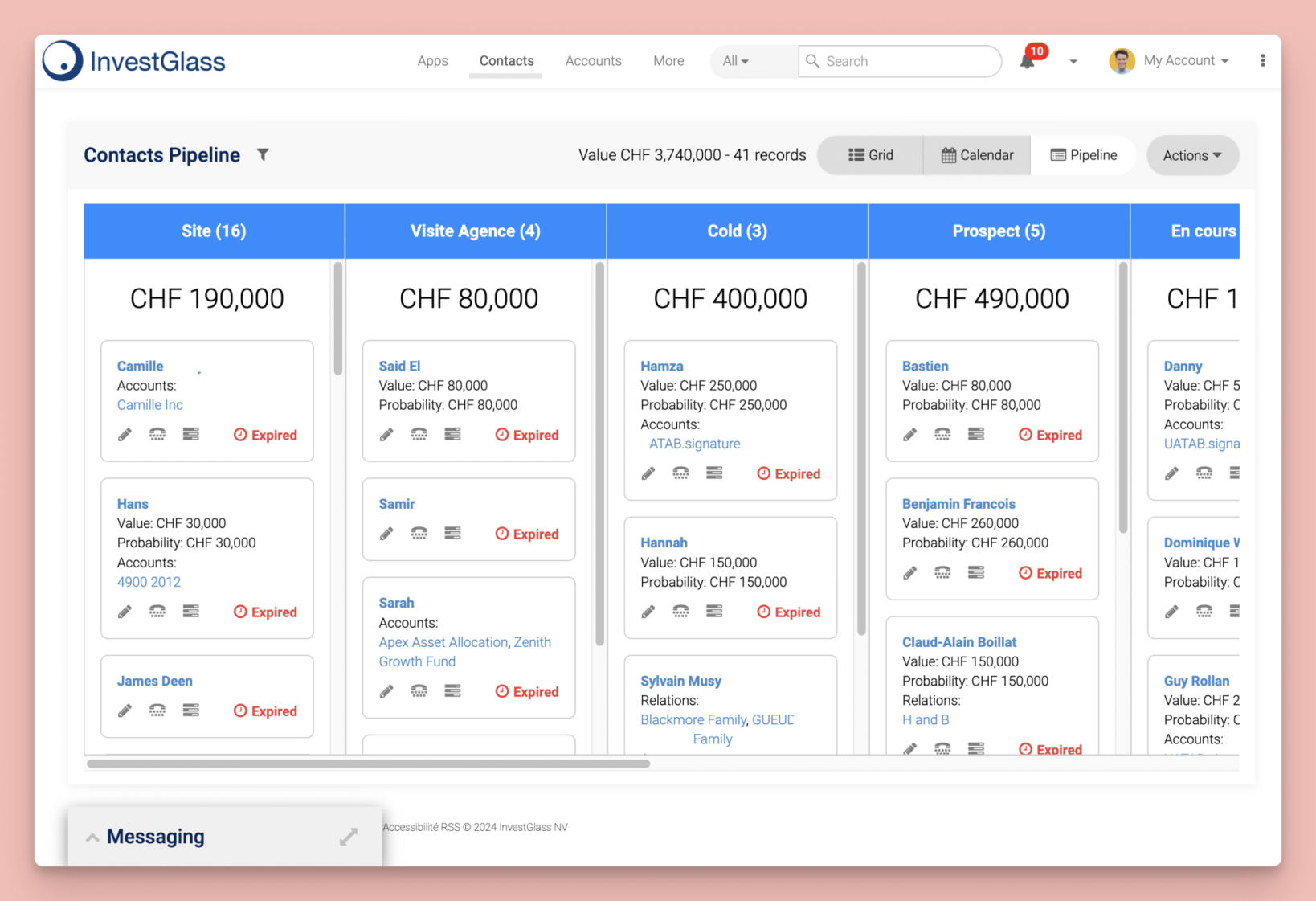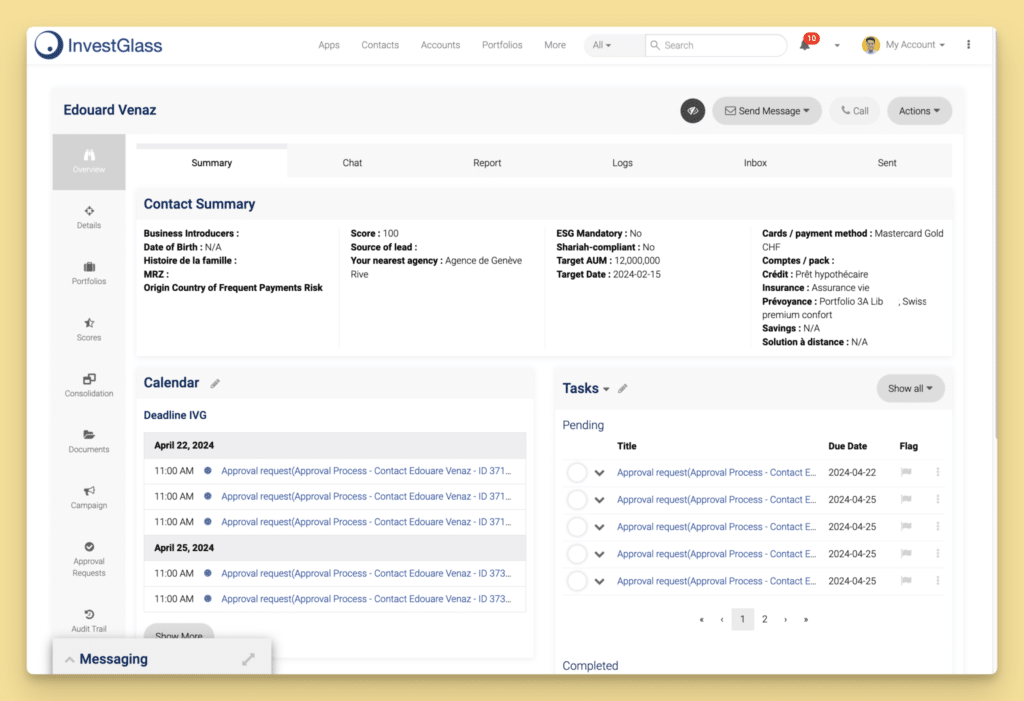Top 10 Cloud Based CRM Software Solutions to Transform Your Business

Introduction to CRM
Customer relationship management software has become one of the most essential tools for modern businesses. Whether you are a small start-up, a fast-growing company, or a large enterprise with multiple teams, having the right CRM platform makes a world of difference.
A CRM system is more than just a database of contact details. It is a centralised tool that enables businesses to track every customer interaction, manage sales strategy, organise marketing efforts, and strengthen customer relationships over time. Traditional CRM solutions often required expensive on-site servers and constant system maintenance. Today, cloud based CRM solutions have changed the game.
Cloud based CRM systems provide flexible access, so your sales teams, marketing departments, and customer support agents can access customer information from anywhere. Whether you are closing deals on the road, monitoring sales pipeline tracking in the office, or adjusting marketing campaigns from home, all the information is at your fingertips in just a few clicks.
The best cloud based CRM software also helps businesses reduce administrative tasks and routine tasks, freeing up time for staff to focus on building stronger customer communication, improving business operations, and enhancing business performance.
This article explores the top 10 cloud based CRM software providers on the market today, including InvestGlass CRM, Zoho CRM, Copper CRM, and others. We will look at the key features, benefits, and differences between the best cloud CRM software options, as well as what you should consider for successful CRM implementation in your organisation.
Why Cloud Based CRM Solutions Matter
Modern businesses need agile tools that can evolve with them. A cloud CRM removes the burden of maintaining your own servers, reduces IT costs, and eliminates the complexity of system maintenance. Instead of relying on traditional CRM models, which demanded heavy infrastructure investment, businesses can now adopt flexible, subscription-based solutions.
Cloud CRM platforms bring together marketing automation platforms, robust sales automation, collaboration tools, and project management capabilities in one place. This integration supports the entire customer journey, from the first touchpoint to closing deals, ensuring your sales processes and marketing efforts are aligned.
The result is more efficient business processes, improved business data management, and ultimately, a boost in both employee productivity and customer satisfaction.

Benefits of Using Cloud Based CRM
Cloud CRM providers design their platforms to enhance every part of business operations. Some of the most important benefits include:
- Lower costs and no need for on-site servers
- Real-time access to customer database and business data from anywhere
- Seamless collaboration tools for sales, marketing, and support teams
- Scalable solutions for businesses of all sizes
- Regular updates and enhanced security with minimal disruption
- Integrations with widely used platforms such as Google Workspace and accounting software
- Improved ability to track customer communication and strengthen customer relationships
- Access to analytics that reveal insights into sales performance and marketing effectiveness
By adopting cloud based CRM solutions, companies can modernise their sales strategy, boost productivity across teams, and create smoother customer interactions.
Key Features to Look For in CRM Platforms beyong Contact Management
When comparing the best cloud CRM software, there are several important features that every organisation should evaluate.
Contact management and lead tracking are at the core of every CRM. This ensures you always have complete customer information and contact details readily available. Sales pipeline tracking is another must-have, helping businesses follow the entire sales process, from lead generation to final negotiations.
Robust sales automation and marketing automation platforms are also essential. These tools take care of routine tasks such as sending follow-up emails, updating records, and scheduling reminders. This not only reduces administrative tasks but also ensures that no opportunity slips through the cracks.
Modern CRM platforms also integrate with project management capabilities and task management systems. This combination makes it possible for businesses to coordinate campaigns, oversee projects, and track performance from one central hub.
Analytics and reporting are equally important. A strong CRM should provide detailed insights into business performance, customer behaviour, and sales processes, enabling data-driven decisions that enhance overall business operations.
Data Security and Compliance
Businesses today handle sensitive customer information that must be carefully protected. Cloud CRM providers invest heavily in security to safeguard data. Encryption, multi-factor authentication, and role-based access control are standard measures across the best cloud CRM software.
Automatic backups and disaster recovery ensure business continuity, even in the face of unexpected technical failures. Compliance with regulations such as GDPR and industry-specific frameworks is also critical.
InvestGlass CRM, for example, offers financial institutions and regulated industries the ability to host customer databases in their own servers or private cloud. This ensures not only flexibility but also the highest levels of data security and compliance, which is particularly important for sectors like wealth management and fintech.
Best Practices for Small Businesses
Small businesses can gain enormous benefits from adopting cloud CRM platforms, but they must make careful choices. The best cloud based CRM for a small company will offer flexibility, scalability, and straightforward pricing. It should integrate with existing tools such as Google Workspace or email marketing systems and provide clear insights into sales pipeline tracking and customer communication.
Small businesses should also focus on easy-to-use CRM tools that reduce the learning curve for employees. With successful CRM implementation, even a small team can strengthen customer relationships, optimise sales processes, and boost employee productivity.
Marketing Automation and Campaign Management
Marketing automation is no longer just for large corporations. Cloud based CRM solutions bring marketing automation platforms to companies of all sizes. With the right CRM tools, businesses can run targeted campaigns, personalise customer journeys, and measure the effectiveness of marketing efforts.
These features enable marketing teams to manage the entire customer journey, from the first point of contact to post-sale engagement. Automatic reporting tools provide insights into business performance, helping teams refine strategies and allocate resources more effectively.
For instance, a business can set up a campaign in just a few clicks, schedule personalised follow-ups, and track results in real time. By combining marketing automation with sales processes, businesses achieve better alignment and more consistent outcomes.
The Top 10 Cloud Based CRM Providers
- InvestGlass CRM – Specialised for financial services and regulated industries with portfolio management, compliance tools, and marketing automation built in.
- Zoho CRM – Known for affordability and integration with project management and task management capabilities.
- Copper CRM – Designed for seamless use with Google Workspace, ideal for businesses that want CRM tools integrated into existing workflows.
- Salesforce – A long-established provider offering advanced CRM capabilities and customisation, although often complex for smaller companies.
- HubSpot CRM – Popular for inbound marketing efforts, with free and scalable options suitable for growing businesses.
- Microsoft Dynamics 365 – Strong integration with Microsoft products, offering both CRM and enterprise resource planning features.
- Pipedrive – A sales-focused CRM with simple visual tools for sales pipeline tracking and the entire sales process.
- Freshsales – An intuitive solution that combines sales automation with communication tools for customer interactions.
- Monday.com CRM – Built on a project management foundation, offering flexibility and collaboration tools across teams.
- Insightly – Combines CRM capabilities with project management features, making it suitable for service-based businesses.
Pricing and Plans
CRM providers typically offer flexible plans to fit different budgets and business sizes. Most platforms provide free trials, transparent pricing structures, and discounts for annual commitments. Some offer customised enterprise pricing for businesses with complex requirements.
Cloud based CRM solutions also reduce hidden costs. With no need for system maintenance or hardware investment, businesses only pay for the features they actually use. This makes it easier to budget for long-term growth and focus resources on strengthening customer relationships and improving business performance.
CRM Implementation and Training
Successful CRM implementation requires more than simply purchasing software. Businesses should invest time in planning, training, and adapting processes to take advantage of the full CRM capabilities.
The best cloud based CRM providers offer comprehensive training, including online resources, workshops, and ongoing support. By ensuring that teams are confident with the software, businesses can avoid common pitfalls such as underutilised features or incomplete customer information.
InvestGlass CRM, for instance, provides tailored onboarding to financial professionals, ensuring that compliance requirements and specific business processes are seamlessly integrated from day one.

The Future of CRM Platforms
The future of CRM lies in greater automation, artificial intelligence, and deeper integration with other business tools. Routine tasks such as scheduling, data entry, and follow-ups will increasingly be automated, allowing teams to focus more on meaningful customer interactions and closing deals.
CRM providers are also expected to enhance project management capabilities, providing businesses with an even more centralised hub for managing the entire sales process, marketing campaigns, and customer communication.
As businesses continue to rely on digital transformation, the demand for the best cloud CRM software will only grow. Companies that adopt flexible, secure, and innovative CRM platforms will be well-positioned to strengthen customer relationships and drive sustained business performance.
Conclusion
Customer relationship management software has become a cornerstone of modern business. Cloud based CRM solutions provide scalability, security, and flexibility, enabling businesses to manage the entire customer journey with ease. From sales pipeline tracking and marketing automation to project management and collaboration tools, CRM platforms transform how companies operate.
Whether you are considering Zoho CRM, Copper CRM, Salesforce, or HubSpot, the market offers a wide variety of providers. For financial services and regulated industries, InvestGlass CRM offers a unique advantage with compliance-ready features, portfolio management integration, and the flexibility to host data on your own servers.
In a world where customer communication and data-driven decisions define success, adopting the best cloud based CRM is no longer optional. With the right platform, businesses can reduce administrative tasks, boost employee productivity, and build stronger, more profitable customer relationships.
Here’s a 10-question FAQ section tailored to your article. Each question naturally incorporates your requested keywords and highlights InvestGlass while keeping the answers clear, engaging, and SEO-friendly.
Frequently Asked Questions (FAQ)
1. What is a customer relationship management system?
A customer relationship management system is software designed to help businesses organise customer data, track customer interactions, and manage customer relationships more effectively. Unlike traditional methods such as spreadsheets, a modern CRM system centralises everything from lead management to customer engagement in one platform.
2. How does a cloud CRM solution differ from traditional CRM?
A cloud CRM solution is hosted online rather than on your own servers. This means there is no need for system maintenance, hardware investment, or complex updates. A cloud CRM system provides flexibility, mobile access, and seamless integration with other business tools, making it more efficient and cost-effective than traditional CRM software.
3. Why is InvestGlass CRM unique among cloud CRM systems?
InvestGlass CRM is built specifically for financial services, wealth management, and other regulated industries. It allows businesses to host sensitive customer data on their own servers or in a private cloud, ensuring compliance and security. In addition, it combines CRM capabilities with portfolio management, onboarding, and marketing automation, offering a complete solution for managing customer relationships.
4. How does lead management work in a cloud CRM system?
Lead management involves capturing, tracking, and nurturing potential customers until they are ready to buy. A cloud CRM system automates much of this process, helping sales and customer service teams follow up at the right time, monitor customer behaviour, and personalise communication to increase conversion rates.
5. Can a CRM improve customer engagement?
Yes, a well-designed customer relationship management system can significantly improve customer engagement. By analysing customer behaviour and providing personalised customer journeys, businesses can communicate more effectively, anticipate needs, and deliver experiences that build loyalty.
6. Is customer data secure in a cloud CRM solution?
Leading CRM providers prioritise security by using encryption, role-based access, and regular backups. InvestGlass CRM goes a step further by enabling businesses to store sensitive customer data on their own servers if required. This gives companies in regulated sectors more control over compliance and data protection.
7. How do customer service teams benefit from a cloud CRM system?
Customer service teams benefit from having real-time access to a customer database, complete with contact history and previous interactions. With mobile access and seamless integration across departments, service agents can resolve issues faster and provide consistent support throughout the entire customer journey.
8. What role does mobile access play in CRM tools?
Mobile access is a key feature of cloud CRM systems. It allows salespeople, support staff, and managers to access customer information, update records, and monitor business performance while on the move. This flexibility ensures faster responses and better customer communication at every stage.
9. How do flexible pricing plans make CRM more accessible?
Flexible pricing plans mean businesses only pay for what they need, whether they are a start-up or a large enterprise. Many CRM providers, including InvestGlass, offer scalable options, so companies can start small and expand as their customer base grows. This makes cloud CRM solutions cost-effective for businesses of all sizes.
10. Can a CRM system provide seamless integration with other platforms?
Yes, modern CRM platforms are designed with seamless integration in mind. They connect easily with email, accounting software, marketing automation tools, and collaboration platforms such as Google Workspace. InvestGlass CRM, for example, integrates with multiple third-party applications to ensure smooth workflows across business processes.